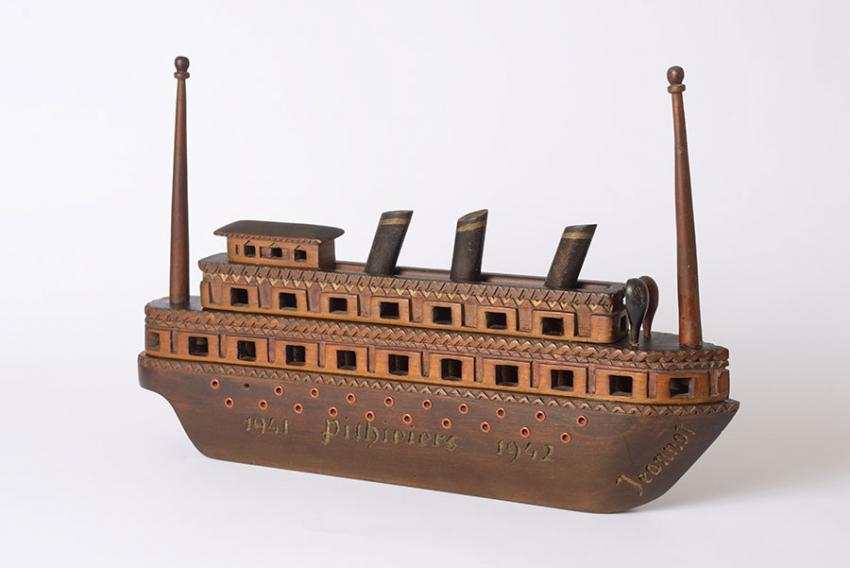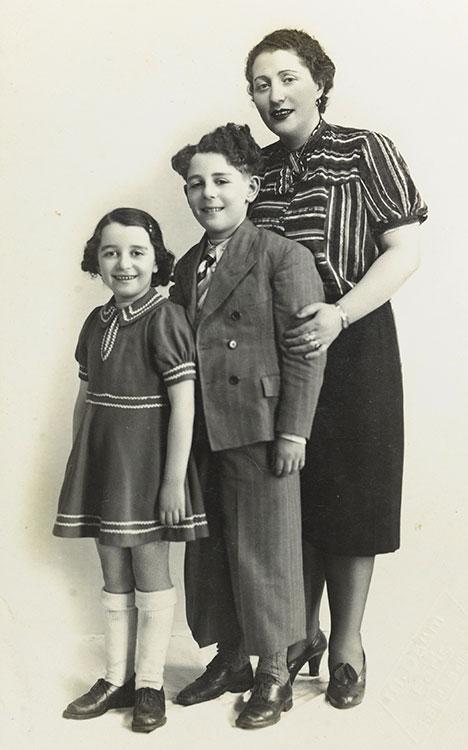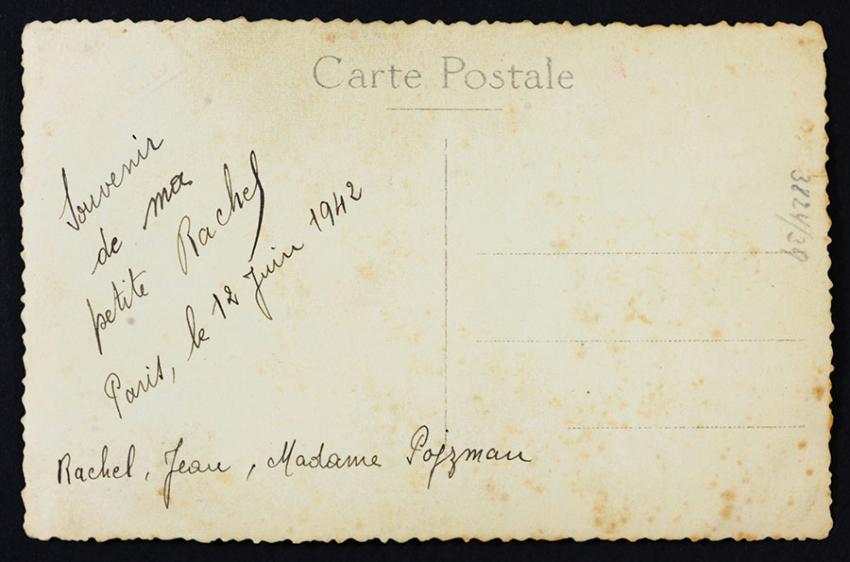At the height of World War II, ten-year-old Jean Pojzman received an unusual gift – a toy boat, inscribed with the words "Jeannot, Pithiviers 1941 1942".

Yad Vashem Artifacts Collection


Yad Vashem Artifacts Collection


Yad Vashem Artifacts Collection

Sunday to Thursday: 09:00-17:00
Fridays and Holiday eves: 09:00-14:00
Yad Vashem is closed on Saturdays and all Jewish Holidays.
Entrance to the Holocaust History Museum is not permitted for children under the age of 10. Babies in strollers or carriers will not be permitted to enter.
At the height of World War II, ten-year-old Jean Pojzman received an unusual gift – a toy boat, inscribed with the words "Jeannot, Pithiviers 1941 1942".

Yad Vashem Artifacts Collection


Yad Vashem Artifacts Collection


Yad Vashem Artifacts Collection

Jean lived with his widowed mother, Esther and his sister, Rachel in the city of Boulogne-Billancourt, France. The boat, which had been handcrafted out of wood, was sent to Jean from the concentration camp of Pithiviers in France by Esther's partner, who had been arrested and incarcerated in the camp.
Boats like Jean's were made by Pithiviers inmates in the camp's carpentry workshop. Prisoners were permitted to send letters and parcels to their families, and in this way, artifacts crafted in the camp during this period, such as doll cradles, powder boxes and picture frames were preserved. The toy boats made at Pithiviers typically had three sections, with a space in the body of the boat for a small electric motor.
It would seem that Jean received the boat shortly before he and his family were evicted from their home. In August 1942, the French police came to the Pojzman home to arrest Jean's mother, Esther. Refusing to part with her children, Esther was sent together with Jean and Rachel to the Drancy detention camp. On 21 August 1942, all three of them were deported to Auschwitz on Convoy #22, and murdered.
A neighbor took the toy boat and some other belongings and photographs, and kept them for the Pojzmans, who he assumed would be returning. Many years after the war, she gave them to an acquaintance who had survived the Holocaust, Dr. Michel Plaskow, and he in turn donated the artifacts to various museums, in order to perpetuate the memory of the Pojzman family.
The fate of the man who sent Jean the boat from Pithiviers remains a mystery to this day. The sender, Esther Pojzman's partner (name unknown), was probably arrested in the round-up of 14 May 1941 known as "la rafle du billet vert". He sent two gifts from Pithiviers: a wooden box for Rachel, which was donated to the Holocaust museum in Paris, and the wooden boat for Jean, donated to the Artifacts Collection at Yad Vashem.

Thank you for registering to receive information from Yad Vashem.
You will receive periodic updates regarding recent events, publications and new initiatives.

"The work of Yad Vashem is critical and necessary to remind the world of the consequences of hate"
Paul Daly
#GivingTuesday
Donate to Educate Against Hate


Worldwide antisemitism is on the rise.
At Yad Vashem, we strive to make the world a better place by combating antisemitism through teacher training, international lectures and workshops and online courses.
We need you to partner with us in this vital mission to #EducateAgainstHate
The good news:
The Yad Vashem website had recently undergone a major upgrade!
The less good news:
The page you are looking for has apparently been moved.
We are therefore redirecting you to what we hope will be a useful landing page.
For any questions/clarifications/problems, please contact: webmaster@yadvashem.org.il
Press the X button to continue



